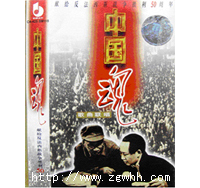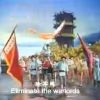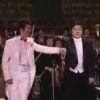
Media file:
mus. 1.2 c
Title:
Yellow River Boatmen´s Song
Source:
Rethinking Cultural Revolution Culture, DACHS Archive
Courtesy:
Heidelberg University Institute of Chinese Studies
Keywords:
Yellow River Concerto
Yellow River Boatmen´s Song
Xian Xinghai 冼星海 (1905–45), hailed as the “People’s Composer” (人民作曲家 Renmin Zuoqujia) after his untimely death in Moscow, had grown up among the fishermen of Guangdong province and had later studied music in Paris. His most famous composition is the anti-Japanese Yellow River Cantata (黄河大合唱 Huanghe dahechang), composed in 1939. Here, traditional and foreign elements are ingeniously combined or redeveloped. In Xian’s piece, the Yellow River becomes an emblem of the Chinese spirit. Chinese civilization is said to have originated in the Yellow River Valley, and the river’s periodic floods continue to cause much agony and suffering even today. It evokes, therefore, strong, even tragic emotions on the one hand, yet also collective memories of desperate perseverance in the face of adversity on the other, and it is fictionalized as such in much early Chinese poetry (Chen 1995, 1–6).
The musical excerpts presented here compare how one passage from the Yellow River Cantata, the “Yellow River Boatmen’s Song,” based on Shanxi dialogue singing (山西对口唱 Shanxi duikou chang) and featuring a male choir and a female choir, has been interpreted in a handful of different versions, each derived from a very different time in Chinese history. The first (mus. 1.2a) is the version presented in the cantata conceived by Xian Xinghai in 1939, the second (mus. 1.2b) is the take the piece is given in the Cultural Revolution piano concerto by Yin Chengzong in 1969, the third (mus 1.2c) is a pop version performed by a group called “Outer Space Singers” (太空人演唱组 Taikongren yanchangzu) in 1995 to mark the fiftieth anniversary of the end of the Sino-Japanese War.





















